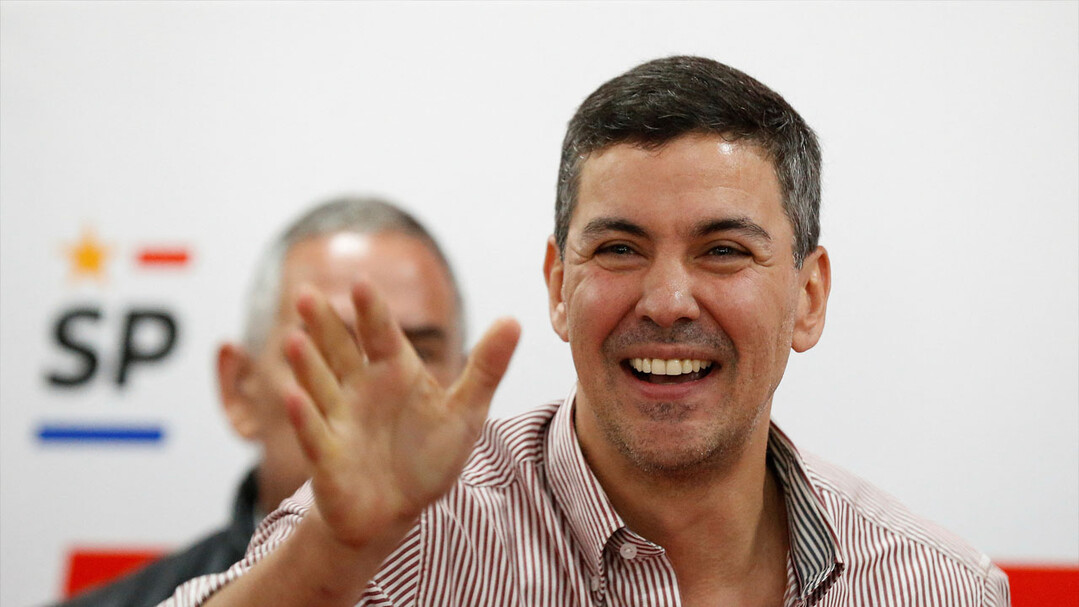
On June 29, 2025, Paraguayan President Santiago Peña marked his second year in office. Throughout his tenure, he has navigated smoothly without major obstacles, governing under unprecedentedly favorable conditions. He has not faced natural disasters or health crises like fires, floods, or pandemics, and has secured overwhelming majority support in both chambers of Congress, swiftly passing all government-proposed bills.
Rumors of impeachment were dispelled from the outset, and there have been no strikes or large-scale protests, maintaining a stable political environment. As a former Minister of Finance, President Peña can be said to have had the opportunity to lead the nation under the most ideal conditions in Paraguay's history. So, have these favorable conditions translated into actual governance achievements?
Performance Evaluation: Is It Still Too Early?
As journalist Luis Bareiro points out, it is still too early to judge the success or failure of the policies President Peña highlights as his major achievements. Projects like 'Hambre Cero' aimed at improving school meals, the increase in police personnel, and frequent overseas trips to attract foreign investment are all policies whose effects will only become apparent in the long term. Whether these policies have brought positive changes to the lives of the people can only be clearly assessed over time.
However, Bareiro criticizes that he cannot shake off the impression that there is a lack of concrete policies or plans that would significantly change the quality of life for citizens in the short term. The reality in Paraguay is that a significant number of people still work in the informal sector, earning at or below minimum wage, and do not receive health insurance or pension benefits. This can be interpreted to mean that the economic growth and social welfare improvements promised by the Peña government have not yet been tangibly felt.
Unresolved Social Issues
Daily instability continues to plague Paraguayan society. In particular, survival crimes committed by drug addicts have not decreased, and the "zombie" phenomenon of them wandering the streets and committing thefts is exacerbating social anxiety. Government-backed anti-drug programs like 'Chau Chespi' and social integration projects like 'Sumar' are still criticized for remaining empty promises.
Improving the public transportation system was also a major promise of the Peña government. Early in its term, the government announced new legislation to reorganize bus services and plans for a famous suburban train. Unfortunately, the bill has not even been submitted to Congress, and the suburban train project appears largely unrealistic. Meanwhile, public transportation users continue to suffer from poor conditions and unfriendly service. Paraguay's public transport is characterized by chronic congestion, outdated vehicles, and irregular schedules, causing great inconvenience to citizens. Especially during rush hours, bus interiors are so crowded that it's difficult to breathe, and safety issues are also serious.
Itaipú Dam and Energy Policy Challenges
The Peña government successfully secured substantial financial resources for the national treasury by increasing the energy tariff of the Itaipú hydroelectric power plant. This achievement, made through negotiations with Brazil, was a significant opportunity to strengthen Paraguay's energy sovereignty and increase national revenue. However, it has faced criticism for not including these funds in the public budget, allegedly to evade auditor oversight.
Furthermore, fundamental negotiations with Brazil regarding Itaipú have been completely suspended due to the Brazil-Paraguay wiretapping scandal. Despite good ideas being proposed for utilizing Itaipú's revenue, no new negotiations are currently possible. This means that Paraguay is not properly utilizing potential resources that could serve as a crucial driving force for national development.
Slow Progress in Health and Education Sectors
President Peña himself admitted that the public health sector showed the most insufficient results, and improvement in this area has been slow. While some hospitals have been built and ambulances purchased, the public health system as perceived by citizens remains at a serious level. Inadequate responses in emergencies, medicine shortages, and a lack of medical personnel remain unresolved. Criticism suggests it's like trying to stop a massive hemorrhage with a small band-aid. Furthermore, the lack of information regarding what health model the government is proposing only increases public anxiety.
The education sector is also an area where immediate results are difficult to expect. Although the Minister of Education seems to understand the direction forward, at least at the discourse level, building trust after decades of accumulated indifference and laxity is not easy. Criticism continues that fundamental reform of the education system is necessary to secure Paraguay's future. Low investment in education, poor teacher compensation, and a lack of educational infrastructure remain chronic problems in Paraguayan education.
A Time of Wasted Opportunity?
Bareiro argues that while it's unfair to say the Peña government did nothing, its achievements were meager or ordinary given the exceptionally favorable conditions. He notes that he cannot shake the feeling that the Peña government lacked vision or ambition, spending valuable time and an astonishing period of stability without fundamental reforms or revolutionary plans.
He hopes his judgment is wrong but warns that if five years are squandered, it will lead to the misfortune of another two or three generations. The criticism that Paraguay has wasted countless opportunities over the past 75 years, and that the current situation is an extension of that, hits hard. It remains to be seen whether President Santiago Peña can dispel these criticisms and show tangible results for Paraguay's true development during his remaining term.
[Copyright (c) Global Economic Times. All Rights Reserved.]




























